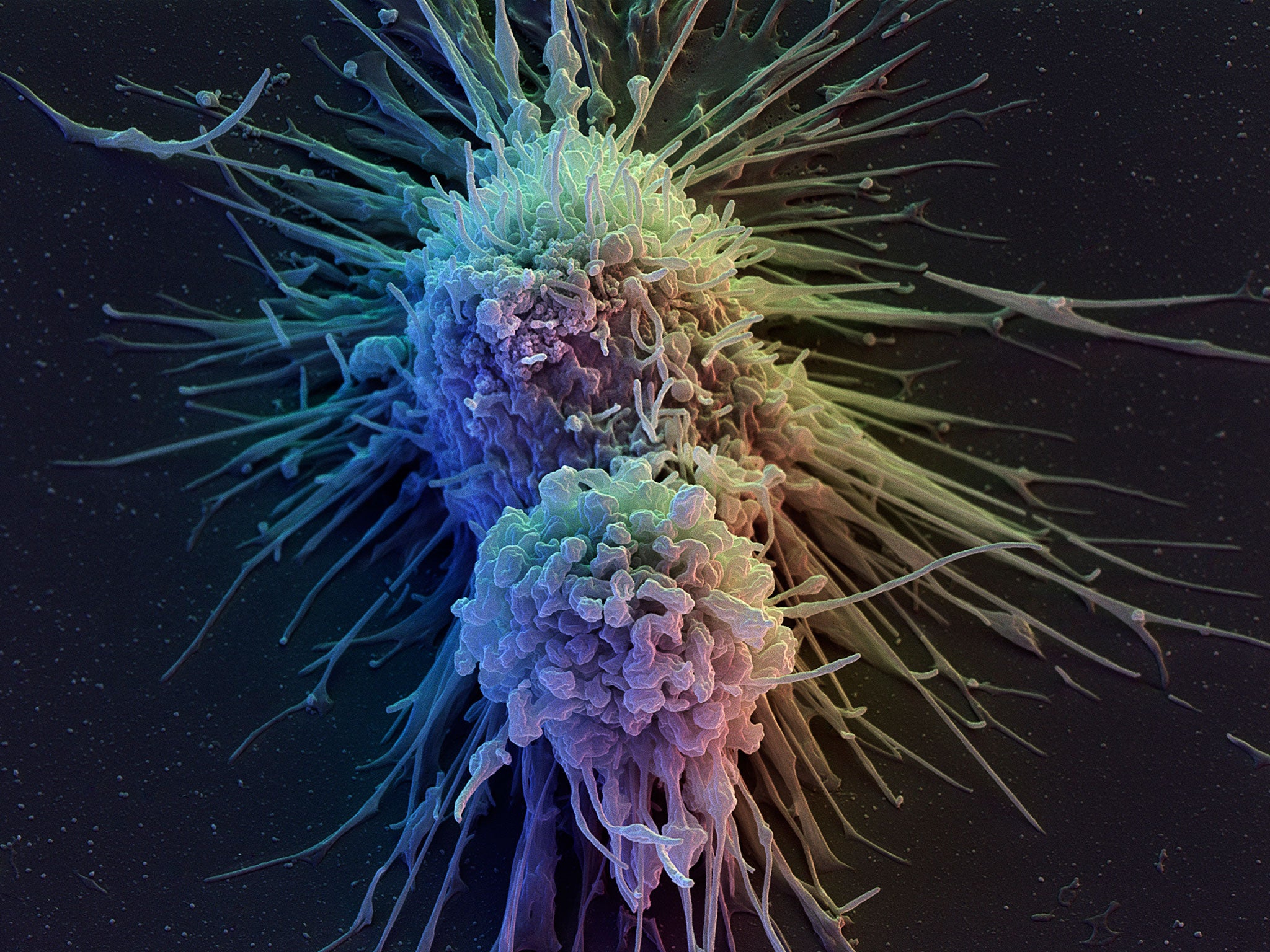T-cell therapy offers lasting cure prospects, scientists say
Scientists finds ways of commandeering the natural killing capacity of T-cells to identify, memorise and attack tumour cells

A revolutionary cancer therapy that uses the body’s own immune cells to attack metastatic tumours that have spread is being hailed as a “paradigm shift” in treatment of the disease.
Patients with advanced blood cancers who were not expected to live beyond five months have shown complete remission after 18 months of follow-up checks with no signs of the disease returning, scientists have revealed.
In one trial of a patient’s own T-cells – a type of white blood cell – that were engineered in the laboratory to identify and attack tumour cells, more than 90 per cent of the 35 patients with acute lymphoblastic leukaemia went into complete remission.
In two other clinical trials involving about 40 patients with either non-Hodgkin’s lymphoma or chronic lymphocyte leukaemia, more than 80 per cent of patients responded to the treatment. About half of them have been in complete remission for up to 18 months, scientists said.
Detailed findings of the clinical trials are to be published later this year, but summary results were discussed at the American Association for the Advancement of Science, whose annual meeting in Washington DC ended yesterday.
T-Cell Therapy - How It Works
Show all 6Cancer specialists urged caution over the early trials of T-cell therapy, saying that it did not work for everyone and some patients experienced toxic side-reactions and died. However, they said the improvements seen in some patients who had failed every other course of treatment were unprecedented.
“In the laboratory and in clinical trials, we are seeing dramatic responses in patients with tumours that are resistant to conventional high-dose chemotherapy,” said Dr Stanley Riddell, of the Fred Hutchinson Cancer Research Centre in Seattle. “These are in patients who have failed everything. Most of the patients in our trial would be projected to have two to five months to live. This is extraordinary. This is unprecedented in medicine, to be honest – to get response rates in this range in these very advanced patients.
“We have a long way to go. The response is not always durable. Some of these patients do relapse, we are cognisant of that. But the early data is unprecedented. This is potentially paradigm-shifting in terms of how we treat them. I think this is a significant breakthrough, but we have a way to go. We have to understand how we bring it forward earlier into the treatment course of these diseases. We don’t want to wait until patients have failed everything else.”
T-cells form an important arsenal in the body’s immune defences. They help to identify invading viruses and bacteria and can keep a “memory” of previous infections in order to launch a rapid immune response when the body comes under a repeat attack.
Scientists have found ways of commandeering the natural killing capacity of T-cells to identify, memorise and attack tumour cells. One approach uses a chimaeric antigen receptor (CAR) with two sticky ends. One attaches to the T-cell and the other to a tumour cell.
Dr Riddell’s team has developed a method of making CAR T-cells that are highly stable and consistent, which lowers the risk of a toxic reaction, known as a cytokine storm, which can result in fatal fevers and falls in blood pressure.
“Our approach has been to try to formulate a T-cell product of defined composition in every patient, so it is the same in every patient. It removes a big variable,” Dr Riddell said. “These cells have the capacity to proliferate. They have the capacity to survive long term as memory cells, and they have the capacity to differentiate to the effective lineages that are necessary to mediate anti-tumour activity.”
T-cell therapy works best on the “liquid” tumours of the blood and bone marrow. Scientists believe its strength lies in the fact that T-cells can live and proliferate within the body for months or even years after they have been transfused back into patients.
One clinical trial involving another kind of modified T-cell found that they were still in circulation within the bloodstreams of patients 14 years after being transfused, according to Dr Chiara Bonini, of the University Vita-Salute and San Raffaele Scientific Institute in Milan, Italy. “The last time [I saw] a change in remission rates like this must have been in 2000. This is really a revolution. I think we are at the beginning of a road. I think the first products will be available very soon,” Dr Bonini said. “T cells are a living drug and, in particular, they have the potential to persist in our body for our whole lives.”
Subscribe to Independent Premium to bookmark this article
Want to bookmark your favourite articles and stories to read or reference later? Start your Independent Premium subscription today.

Join our commenting forum
Join thought-provoking conversations, follow other Independent readers and see their replies